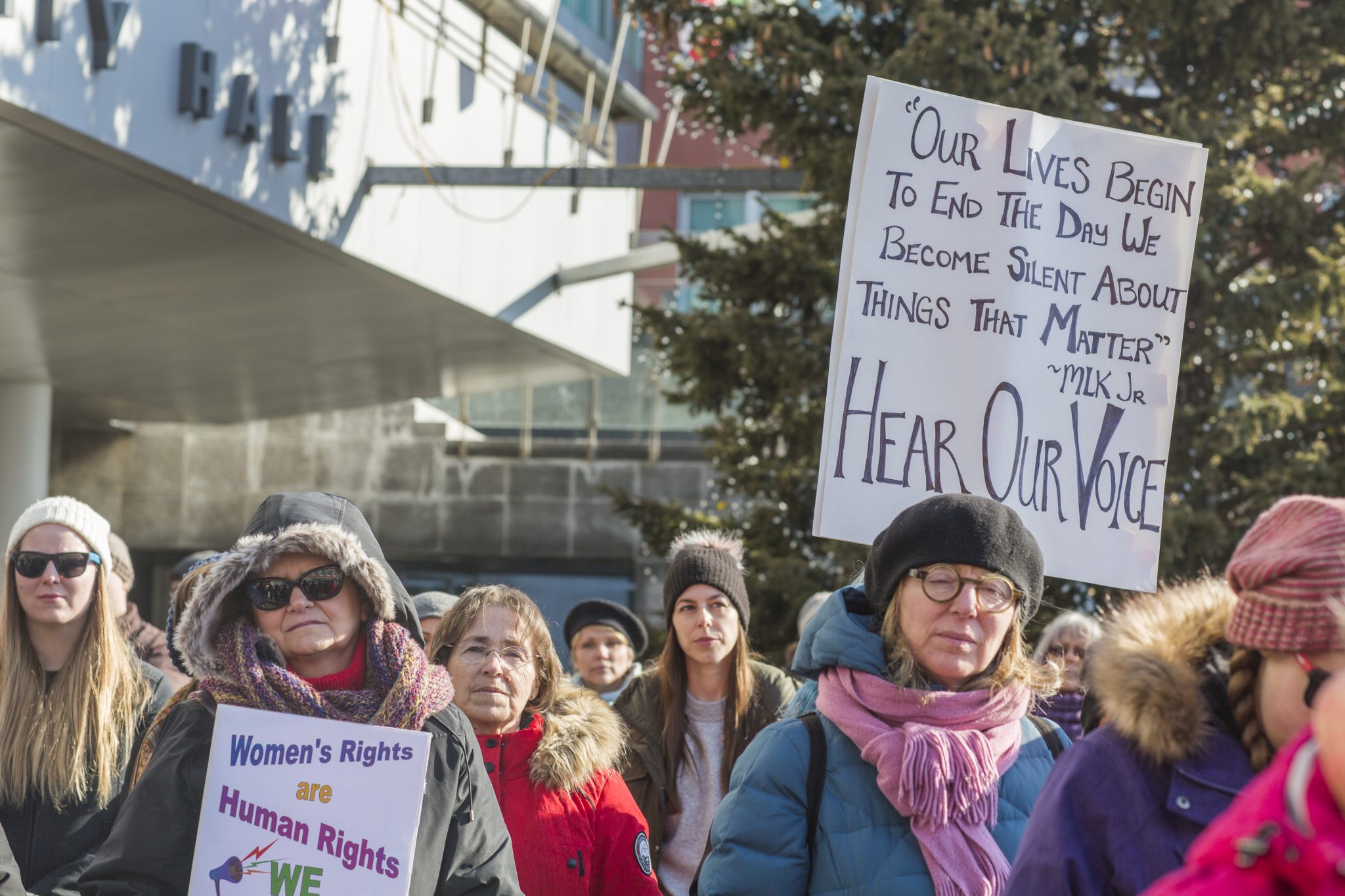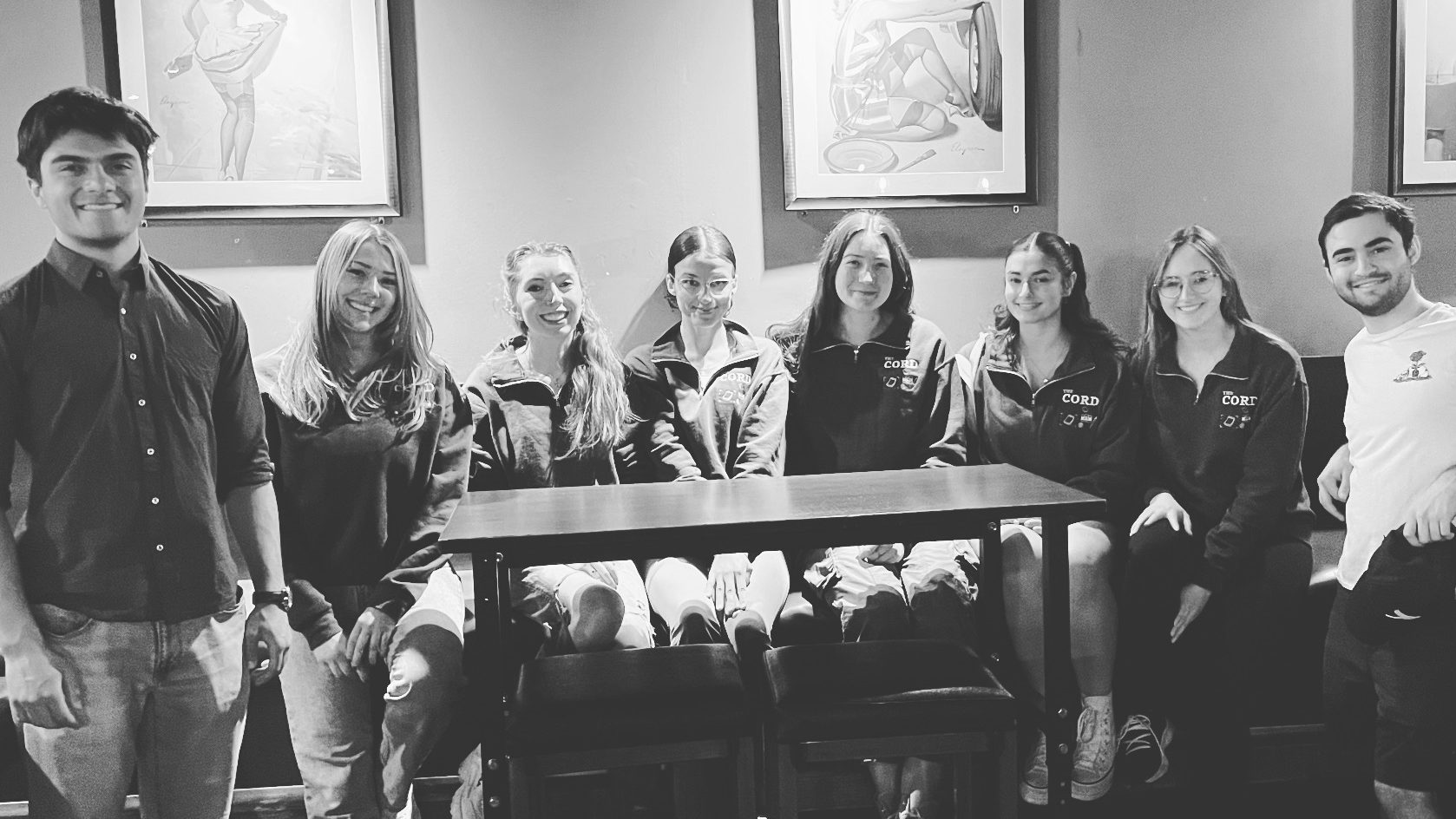
On Jan. 20, 2017, 500 individuals joined together to march for women’s rights in downtown Kitchener.
The Women’s March of the Waterloo Region is one of the many worldwide protests that advocate for human rights.
“Women’s rights are human rights and I think that my main lens is that women can be leaders,” Carolina Miranda, coordinator of the Waterloo Region Women’s March, said.
“We wanted to make sure we show that female leadership is something that is very important for our society; if you don’t have female leadership than you exclude half of our human perspective.”
The march began at Carl Zehr Square and participants marched to the Kitchener Market and then back to the square for speeches and music.
“The women’s march protests against women’s rights being taken away,” Sarah Wiley, speaker and host for the Waterloo Region Women’s March, said.
“Racialized people’s rights and Indigenous peoples’ rights being taken away, we’re supporting immigrant women, Muslim women, women with disabilities and [protesting against] the right-wing movement that is taking those rights away.”
Speakers included MPP Kathryn McGary, Councilor Jane Mitchell, Catherine Fife, Robyn Hobbs, Pamela Rojas-Perez, Laura Mae Lindo, former director of Laurier’s Diversity and Equity office, as well as many more activists.
Music featured the Women to Women Choir and the Positive Percussion Presence.
“We’re on the cusp of change in terms of transformation in addressing women’s issues,” said Sarah Casselman, executive director of the sexual assault support centre, speaker at the march and a Laurier grad.
“I think it is an event that validates and gives women and men a voice,” Heather Majaury, artist and activist speaker of the Women’s March, said.
“Believing women and trusting women is vitally important to the future of our city, the future of our country and the future of the world.”
The Women’s March of the Waterloo Region also focused on advocating female leadership and educating the community on the issue of all women’s rights.
“Another part of our event is the importance of our own diversity as women,” Miranda said.
“Not all women are mothers and not all women have the same stories. It’s really important to start coming together and understand that we as women are diverse and it is in our diversity that we find our richness,” Miranda said.
The women’s march highlighted many important political and social issues that exist today and promoted future changes.
“We’re on the cusp of change in terms of transformation in addressing women’s issues,” said Sarah Casselman, executive director of the sexual assault support centre, speaker at the march and a Laurier grad.
“A political will [is] starting to build and to start addressing women’s equity issues, violence against women and so more and more attention is being paid to the issues,” Casselman said.
People from all over the region gathered together in protest of what they deemed to be important. Many marchers held signs or wore clothing that reflected their beliefs and what they were protesting for.
“I am a teacher and I think that as an educator it is also my duty to educate — not only my students, but their parents — about the importance of equity in all realms,” Miranda said.
“When we start becoming more compassionate and understanding of each other, that’s when those issues go away.”
The march was a considered a major success and peaked at around 500 individuals who attended the event.
“I think this is the beginning and not the end of something,” Majaury said.







Leave a Reply
You must be logged in to post a comment.